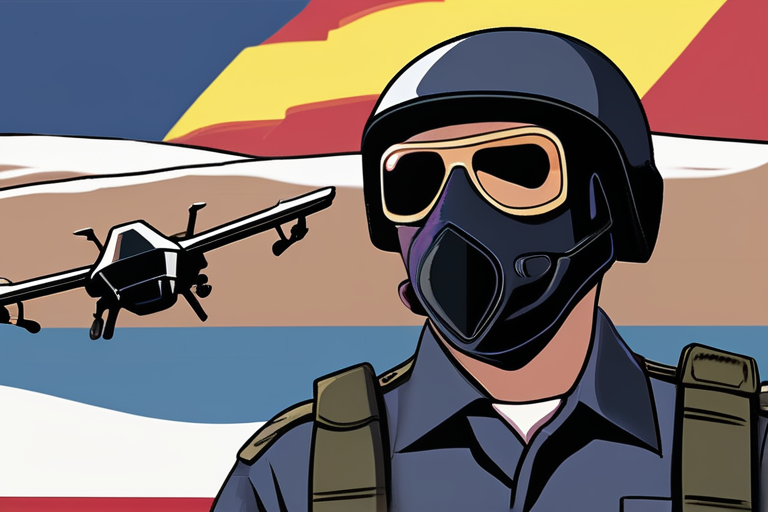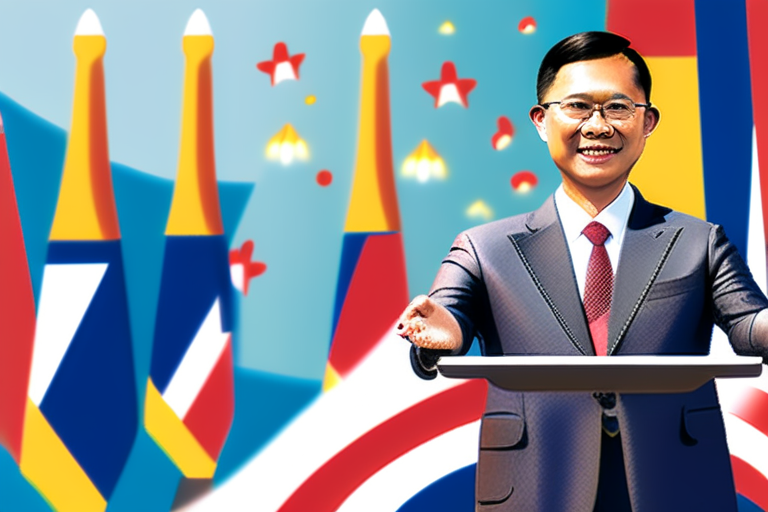License to Kill: Trump's Extrajudicial Executions Raise Global Concerns
In a shocking escalation of its international drug war, the Trump administration has authorized at least four targeted drone strikes against suspected narco-terrorists off the coast of Venezuela over the past month. The strikes have resulted in the deaths of 21 people, sparking widespread condemnation from human rights groups and raising questions about the legality of such actions.
According to sources, the Trump administration claims that these strikes are aimed at high-level drug kingpins, but experts say this justification is flimsy at best. "The administration's narrative doesn't hold water," said Nick Turse, senior reporter for The Intercept. "They're killing civilians because they suspect them of smuggling drugs, and that's outright murder."
Turse joined host Akela Lacy and investigative journalist Radley Balko on this week's episode of The Intercept Briefing to discuss the administration's approach to extrajudicial killings abroad and possibly at home.
The strikes have been carried out without congressional oversight, raising concerns about the Trump administration's disregard for international law. "This is a dark shift in the administration's approach," said Turse. "They're essentially creating their own rules as they go along."
The global community has long criticized the use of drone strikes as a means of extrajudicial execution. In 2013, the United Nations Human Rights Council passed a resolution condemning the use of drones for targeted killings, citing concerns about civilian casualties and lack of accountability.
In Venezuela, where the strikes have taken place, officials have condemned the actions as "unacceptable" and "a clear violation of international law." The country's foreign minister, Jorge Arreaza, has called on the Trump administration to provide evidence of its claims and to respect Venezuelan sovereignty.
As the situation continues to unfold, experts warn that the Trump administration may be laying the groundwork for further extrajudicial killings at home. "This is a slippery slope," said Turse. "If they can justify killing people abroad without due process, what's to stop them from doing it here?"
The international community remains on high alert as the situation continues to evolve. The United Nations has called for an emergency meeting to discuss the implications of these actions and to urge restraint.
In a statement, the White House defended the strikes, saying they were "necessary" to combat narco-terrorism. However, critics say this justification is thin and that the administration's true motives are unclear.
As the world watches with growing concern, one thing is clear: the Trump administration's approach to extrajudicial executions has raised serious questions about its commitment to human rights and international law.
Background
The use of drone strikes as a means of extrajudicial execution has been a contentious issue for years. In 2013, the United Nations Human Rights Council passed a resolution condemning the practice, citing concerns about civilian casualties and lack of accountability.
Additional Perspectives
Experts say that the Trump administration's actions are not only illegal but also counterproductive in the fight against narco-terrorism. "Killing civilians doesn't solve the problem," said Turse. "It just creates more resentment and fuels further violence."
In a statement, the American Civil Liberties Union (ACLU) condemned the strikes as "unlawful" and "unacceptable." The organization called on the Trump administration to provide evidence of its claims and to respect human rights.
Current Status
The situation continues to unfold, with the international community watching with growing concern. The United Nations has called for an emergency meeting to discuss the implications of these actions and to urge restraint.
As the world waits with bated breath, one thing is clear: the Trump administration's approach to extrajudicial executions has raised serious questions about its commitment to human rights and international law.
*Reporting by Theintercept.*



 Hoppi
Hoppi

 Hoppi
Hoppi

 Hoppi
Hoppi

 Hoppi
Hoppi

 Hoppi
Hoppi

 Hoppi
Hoppi











